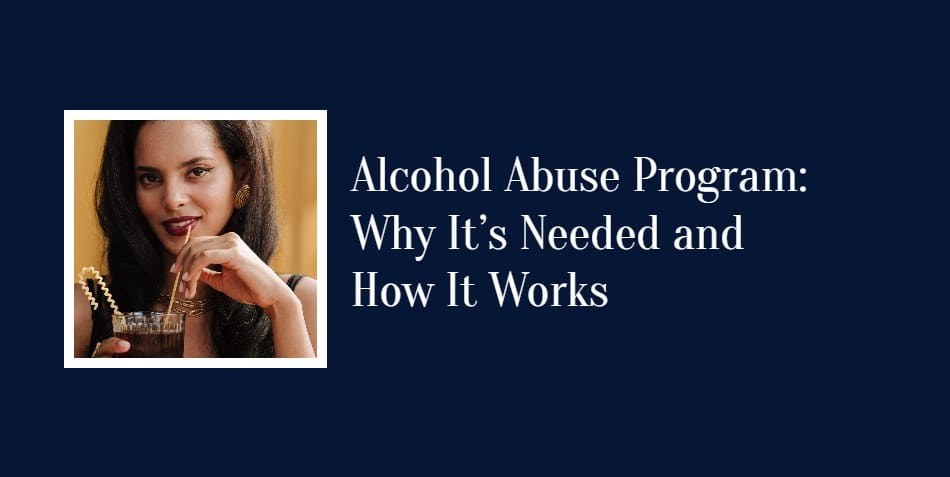Alcohol Abuse Program is here because alcohol abuse is still a current problem in the United States. According to the National Institute of Alcohol Abuse and Alcoholism (NIAAA), “more than 95,000 people die yearly from alcohol-related causes”. And it’s not just deaths. Alcohol and alcoholism have given rise to the destruction of marriages, underage drinking, disorders of unborn children, and liver illnesses, among others. Furthermore, statistics of the NIAAA show that alcohol use disorders affect the economy as well, with alcohol misuse costing the country $249.0 billion. So if you have alcohol use disorder and are willing to be treated, you should look for treatment providers with a suitable alcohol abuse programs treatment plan.
What’s included in an alcohol abuse program?
There are many types of treatment when it comes to treating alcohol addiction and abuse. It all depends on your goals. An alcohol addiction treatment program may include any or even all of the following:
Detox
Alcohol detoxification or detox is when you stop drinking alcohol and give your body time to get it out of your system. As a side effect of abstaining from alcohol, you will experience withdrawal symptoms. These may include nausea, anxiety, and even seizures. This procedure is best managed by a medical professional. Do not try to do this by yourself. Find a hospital or a detox center where you can be an inpatient or an outpatient.
- Inpatient: This is the best option if you’re a heavy alcohol abuser, as you will likely have more severe symptoms. You will have immediate access to health care providers who can monitor you and give medication-assisted treatment to help you manage your withdrawal symptoms. Inpatient treatment will also help you avoid temptations to go back to your old ways.
- Outpatient: You can opt to be an outpatient if you were not a heavy alcohol abuser. You can visit your care providers during the day, get the medicine needed to manage your symptoms, and recuperate from home. As an inpatient, you can transition to the outpatient status once your condition improves.
Cognitive-behavioral therapy
Alcoholism is not only a substance abuse problem. It also involves mental health issues. Cognitive-behavioral therapy or CBT is a kind of therapy or treatment that helps people identify self-destructive behaviors and change them. Undergoing CBT can help you as a recovering addict discover and avoid behaviors and stress triggers that make you want to drink. You’ll also learn better ways to deal with said stress triggers to prevent undoing any progress you’ve made in avoiding relapse.
Prescribed drugs
Another treatment approach when it comes to helping alcohol abuse recovery involves drug prescriptions. They don’t necessarily cure the addiction, but they can make you feel drinking not as enjoyable as you know it. The prescribed drugs can be any of the following:
- Naltrexone: prevents you from feeling pleasure when drinking
- Acamprosate (Campral): decreases the craving to drink alcohol
- Disulfiram (Antabuse): makes you feel sick or want to vomit upon drinking alcohol
- Topiramate: also reduces alcohol cravings
A support system
While stopping drinking is mainly an individual journey for you, a good support system will help you with your sobriety. Surround yourself with family and friends who you know will help keep you alcohol-free. You can also join organizations that offer help to recovering alcoholics like Alcoholics Anonymous. This organization provides peer pressure that can keep you from relapsing. It also provides 12 step programs .
Will an alcohol abuse program fully cure alcohol substance abuse?
When it comes to treating alcoholism, you have to accept that, like with any drug addiction, there is no real cure. However, it doesn’t mean that there’s no hope for an ex-alcohol abuser to live a normal life and stay sober. Addiction recovery will not be a smooth journey, but the existence of different alcohol abuse programs ensures the management of your substance abuse disorder so that you won’t relapse.
For more information about how alcohol and how it affects you, read the Ovus Medical blog.
